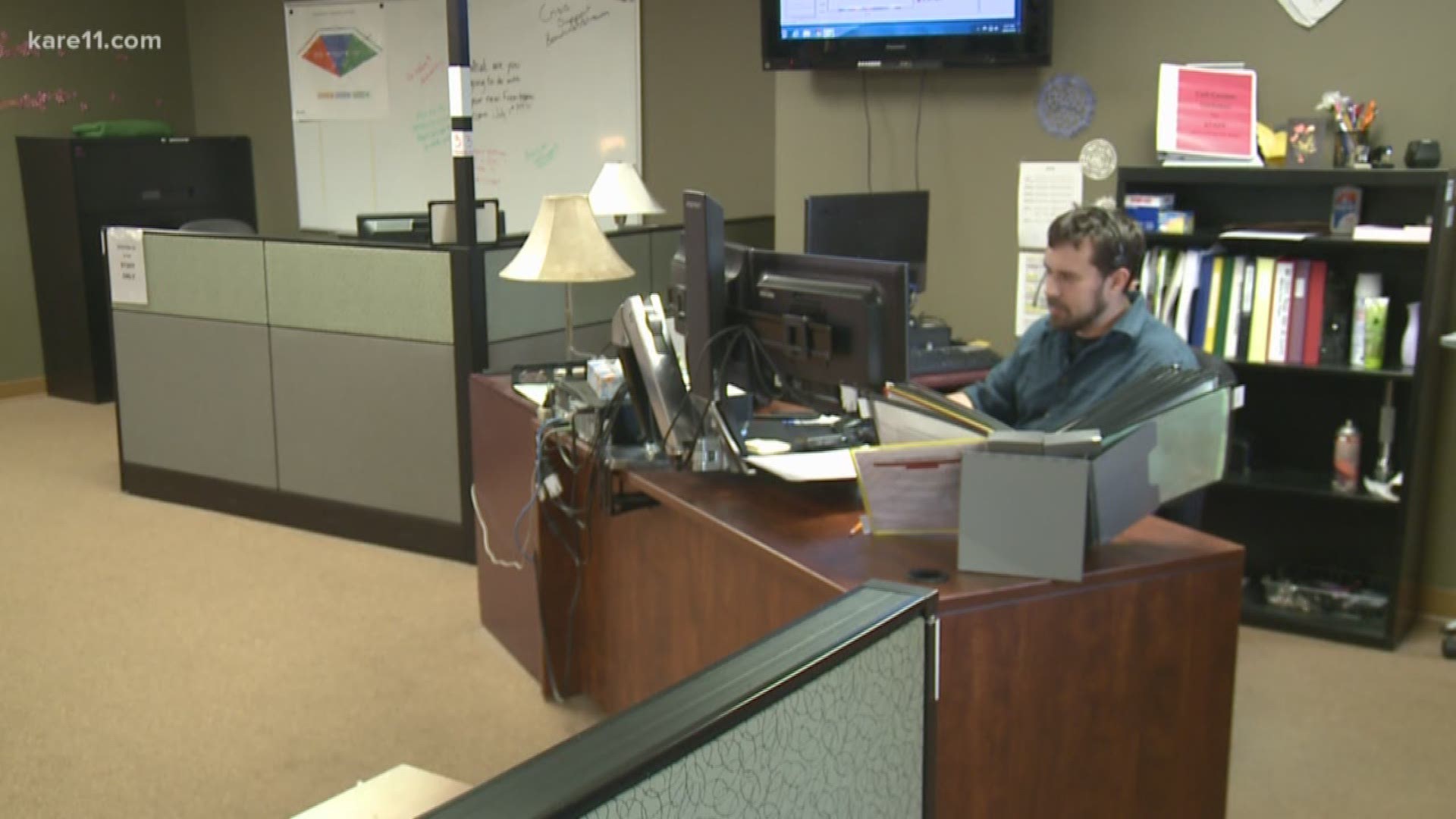MINNEAPOLIS - Minnesota's suicide crisis hotline is preparing to shut down at the end of the month following financial shortfalls.
For more than 50 years, Crisis Connection has linked callers to local mental health professionals and emergency first-responders. The planned shutdown follows a slow but steady increase in the statewide suicide rate in recent years, according to state and federal data.
The center has been trying to raise $1 million to stay afloat. But that money was eliminated after Democratic Gov. Mark Dayton vetoed a broader budget bill last month amid disputes with Republican lawmakers.
On Wednesday the call center was still busy, with calls coming in throughout the day. However, the volunteers and staff members who field the calls had one date in the back of their minds.
June 30th will be their last day at work. At 5 p.m. on that Saturday, the last of the projected 55,000 calls for the year will seize.
"We were asking for $969,000 which would allow us to answer those 55,000 phone calls at an 80 percent answer rate," CEO of Canvas Health Matthew Eastwood said. Canvas Health runs Crisis Connection.
Eastwood said there simply is no other way they could collect the near million dollars to keep operating. He said he's hoping other mental health providers will help fill in the gaps once their line goes down on the 30th.
"[I hope] that the therapists in the broader community can take more responsibility for covering their own clients after hours, weekends and holidays because our number will no longer be there to refer their clients to."
Eastwood said there are other resources for people who need help available.
"The national suicide prevention lifeline will still be available to Minnesota residents," Eastwood said. "It always has been. It simply won't be answered in Minnesota any longer but it will be answered by someone in the country."
As disappointing as it is for this helpline to search for its own lifeline, Eastwood said he understands the constraints of the budget.
"We know we weren't the only ones that did not get funded," Eastwood said. "A lot of programs are at risk because of that lack of funding so we try to keep that in perspective."
The Minnesota Department of Health temporarily paid for part of the hotline's operations last year when it faced a similar fate.
Eastwood said other than the national suicide hotline, those in need of help can also call their county's crisis line or dial **CRISIS if they are in the Metro area.

